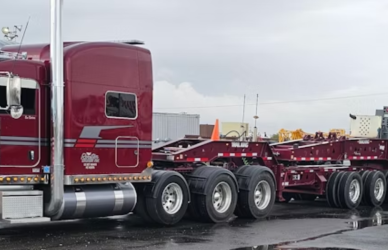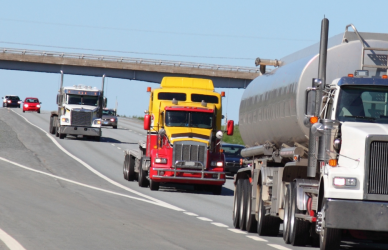The ongoing push by the Department of Transportation to mandate speed limiters on heavy trucks might come to an end soon. On Tuesday, a bill was introduced in the House aimed at effectively terminating this regulation.
In late 2022, the Federal Motor Carrier Safety Administration (FMCSA) listed speed limiter regulation as a rulemaking proposal it expected to pursue this year. The agency extended a comment period on the topic for more than two months in mid-last year and received more than 15,000 comments.
Congressman Josh Brecheen (R-Okla.) has introduced the Deregulating Restrictions on Interstate Vehicles and Eighteen-Wheelers (DRIVE) Act. The act prohibits the FMCSA from requiring that certain vehicles be equipped with speed limiting devices.
The DRIVE Act has been referred to the House Committee on Transportation and Infrastructure and aims to reduce government regulations on the trucking industry.
The bill is co-sponsored by representatives Pete Sessions (R-Texas), Lauren Boebert (R-Colo.), Scott Perry (R-Penn.), Eric Burlison (R-Missouri) and John Moolenaar (R-Mich.). Among the groups voicing support for the bill were the Owner-Operator Independent Drivers Association (OOIDA); Western States Trucking Association; American Farm Bureau Federation; Livestock Marketing Association; National Association of Small Trucking Companies (NASTC); and National Cattleman’s Beef Association (NCBA).
“The physics is straightforward: Limiting trucks to speeds below the flow of traffic increases interactions between vehicles and leads to more crashes,” said OOIDA President Todd Spencer.
Brecheen stated that the proposed speed limiter legislation is an “overreach by the Biden Administration” with the “potential to negatively impact all facets of the agricultural and trucking industries. I know from experience driving a semi while hauling equipment and years spent hauling livestock that the flow of traffic set by state law is critical for safety instead of an arbitrary one-size-fits-all speed limit imposed by some bureaucrat sitting at his desk in Washington, D.C.,” he said.
According to NASTC President David Owen, mandating commercial vehicle speed limiters could make our roads less safe. He argues that this would increase speed differentials between cars and trucks, as well as traffic density and impatience among drivers stuck behind a speed-capped truck. This could lead to riskier driving and more accidents.
“Mandatory speed limiters would likely cost more lives and cause more accidents and injuries,” he said.
The American Trucking Associations (ATA) has been advocating for the implementation of speed-limiting technology on heavy-duty trucks for some time now. In March 2022, the ATA teamed up with Road Safe America to write a letter to Transportation Secretary Pete Buttigieg, calling for the adoption of speed limiters.
Furthermore, the ATA supported the Cullum Owings Large Truck Safe Operating Speed Act, which proposes that all new commercial trucks be equipped with speed limiters and that existing speed-limiting technology installed on trucks manufactured after 1992 should be used while in operation. The bill aims to set maximum speeds at 65 mph, with possible exceptions for safety technologies like automatic emergency braking and adaptive cruise control.
Source: CCJDigital











